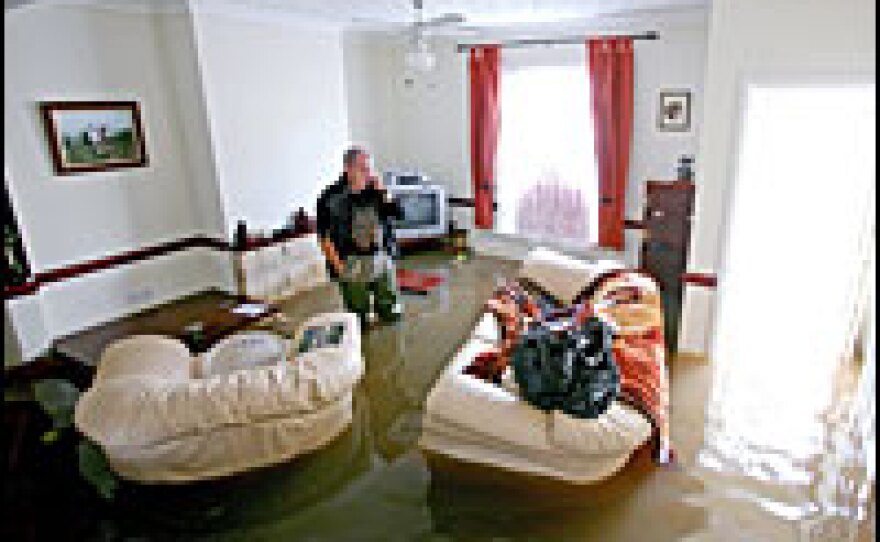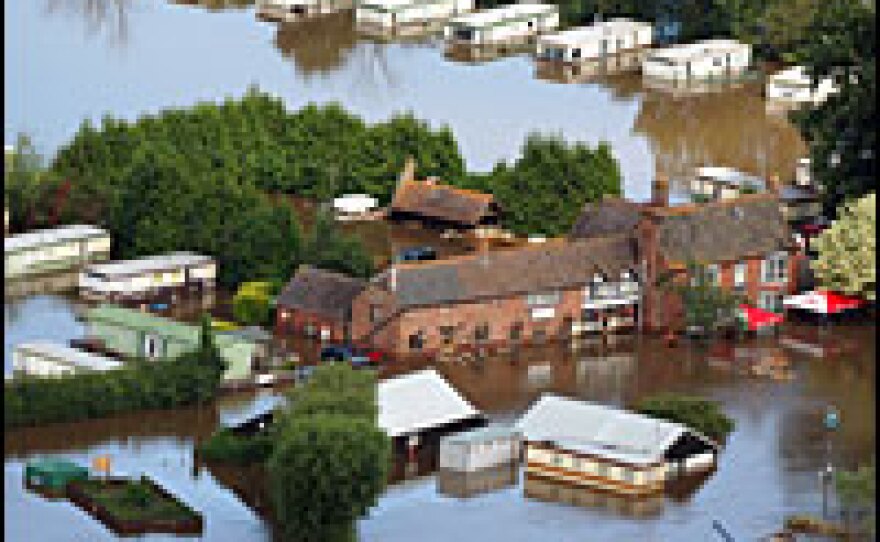
Emergency workers have restored power to thousands of homes in western England, but 350,000 people are still in the dark following the worst flooding in 60 years.
Torrential rains have hit Britain over the past month – nearly 5 inches fell in some areas on Friday alone – and more downpours are forecast over coming days.
Among the hardest hit areas was Tewkesbury, north of Gloucester in southwest England, where rising water entered the 900-year-old abbey church for the first time since 1760.
"It was just devastation – total chaos, cars floating past, rubbish, all kinds," said John King, a 68-year-old retired fire fighter from Tewkesbury. "You just can't stop water of that power."
Some 48,000 homes lost power Monday as the River Severn flooded the Castlemeads electricity substation in Gloucester, 115 miles west of London. Power was restored overnight, police said.
At Walham substation, which serves all of Gloucestershire, frantic efforts by emergency teams kept floodwaters at bay.
"The situation on site is stable currently, because of the fantastic work done by hundreds of people from the fire brigades, army and navy to get up boundaries to stop floodwater coming into the site and bring in heavy pumping equipment," said Nick Windsor of the National Grid Group.
The Environment Agency said the River Severn at Gloucester peaked just inches below the level that would have threatened the city center and a power station serving 500,000 homes.
Gloucestershire County Council's chief executive, Peter Bungard, said flood levels at Tewkesbury would have to fall nearly 36 inches from the peak before drinking water supplies could be restored.
"The very, very best forecast is seven days," Bungard told British Broadcasting Corp. radio. "I'm really, really worried – 350,000 people is hard to imagine, and amongst those are very vulnerable people."
Some residents lined up for free water at local grocery stores, while others took to canoes and small boats to ferry food and water to housebound residents. Severn Trent Water said it aimed to have 900 tankers in place to supply fresh water in the worst-hit areas on Tuesday.
Water levels peaked on the River Thames in Oxford, but communities downstream are prepared for possible surges in the next few days.
"River levels have peaked and the level is now falling, but due to the current high volumes of water this is happening quite slowly," Gloucestershire Police spokesman Katy Roberts said.
On the outskirts of Oxford, 60 miles northwest of London, about 50 people were evacuated to a stadium from a retirement community overlooking the swollen River Ock.
"People look at me and say I look fine, but inside I'm all churned up," said Sylvia Williams, 69.
Sir Nick Young, chief executive of the British Red Cross, said he was shocked by what he saw overnight in Gloucester and Tewkesbury, with "these awful scenes of people huddled around candlelight in the upper floors of buildings," he said.
"It was ridiculous to see young children playing in the water as if it was the beach at Blackpool," Young said. "It is unsafe water, absolutely filthy, polluted by sewage, and people really need to be advised to stay out of it."
From The Associated Press
Copyright 2022 NPR. To see more, visit https://www.npr.org. 9(MDAzMjM2NDYzMDEyMzc1Njk5NjAxNzY3OQ001))






